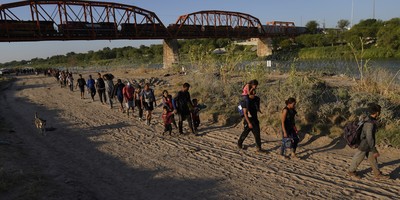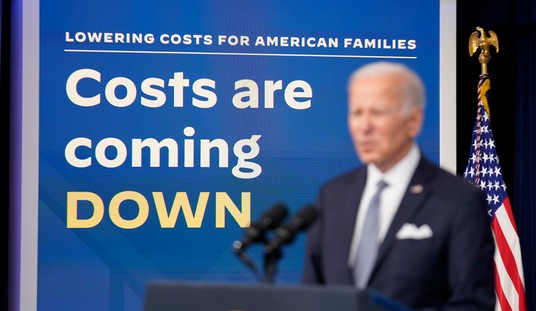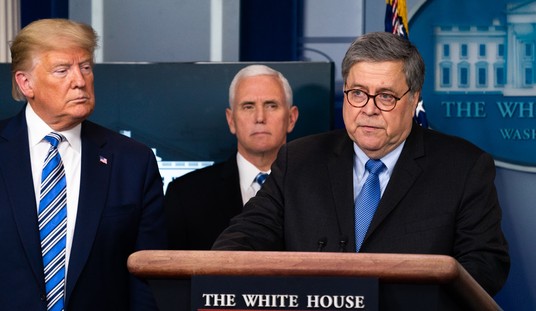In his superb speech in Tucson, Ariz., Wednesday evening, Barack Obama did great service to the nation. He put to rest the libel that political incivility is responsible for the Tucson shootings. He did so with three words that he added to the written text: "It did not."
And he lifted the spirits not only of the inappropriately boisterous audience in the McKale Center, but of people across America, when he reported, after paying moving tribute to those who died, that "Gabby opened her eyes for the first time."
For even as we mourn those lost, we take comfort in knowing that the target of the attack has survived and that she seems to be recovering rapidly, even miraculously.
It is important for national morale that we foil the purposes of the mad and evil persons who seek to assassinate our public officials. This is something that was recognized almost 30 years ago, when Ronald Reagan was struck by a bullet.
On the Senate floor, when notified that Reagan was still alive, Daniel Patrick Moynihan said: "I was glad to hear how well the president is recovering, but there's something larger at stake. I do not know that in our time we have seen such a display. It makes us proud of our president."
For Moynihan, and for all Americans of a certain age in 1981, the memory and national trauma of John F. Kennedy's assassination was still vivid.
The American narrative up to that point was one in which the leaders in our great and bloody struggles, visibly aging as they bore the burdens of war, died at the moment of victory. Abraham Lincoln, his haggard visage familiar from the photographs of Mathew Brady, struck down by an assassin. Franklin Roosevelt, his health shattered and vigor diminished, felled by a sudden cerebral hemorrhage.
Recommended
They sacrificed all so that government of the people, by the people and for the people should prevail and advance.
Kennedy's death, in contrast, came to a man seemingly still youthful (his health problems were not widely known) and not at a moment of great triumph after long adversity. It cast doubt on the idea that we were a singularly blessed nation, with a mission to advance freedom and liberty.
Kennedy's admirers painted him as the victim of a pathologically violent society, of a culture of right-wing hatred in Dallas, though his assassin was a communist sympathizer. As James Piereson has argued in his brilliant book "Camelot & the Cultural Revolution," this view caused many Americans to think less of their society, with negative repercussions that lasted for decades.
In the years that followed, America fought a frustrating war in Vietnam, faced urban riots and campus rebellions at home, dealt with stagnant and inflationary economies, saw one president after another leave office a shattered man.
The gallant recovery of Ronald Reagan, as Moynihan instantly recognized, revived American spirits and restored for many Americans the belief that we are a blessed country, with a great heritage and great responsibilities. The gallant recovery of Gabrielle Giffords, which we all hope continues apace, may do much the same.
Reagan's would-be assassin and the Tucson shooter acted out of mental illness and delusion. Their actions were not evidence of any large societal defect, except perhaps a reluctance to confine and treat people with profound mental disturbance.
Barack Obama seems to understand this clearly. "When a tragedy like this strikes, it is part of our nature to demand explanations -- to try and impose some order on the chaos and make sense out of that which seems senseless," he said in Tucson. But, he went on, "Scripture tells us that there is evil in the world, and that terrible things happen that defy human understanding."
Obama first came to the favorable attention of the nation at the Democratic National Convention in 2004, when he proclaimed that we were not red states and blue states, but red, white and blue America. After months of partisan debate, in which he like others used the military metaphors common in our political vocabulary, he spoke in Tucson as the leader of one nation.
It will probably help him politically. But, more important, it will help the nation.
























Join the conversation as a VIP Member